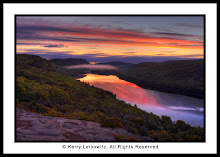Walking on Water
By: Derrick Jensen
As I am sure most of you know by now, I am a huge fan of Derrick Jensen. I have read several of his books and each time I am enthralled. I start sending quotations and statistics from them to friends who (typically) ignore me and hope I’ll finish reading soon. The most recent book I read by him, however, is one that even my least liberal of friends would appreciate: Walking on Water.
This book is, on the surface, about the education systems in western civilization and how they form children into the wage slaves they will need to be in the “real world”. Derrick Jensen reflects on his own experiences as a student as well as those as a teacher at both a prison and a university. He mentions numerous times that the places didn’t vary “as much as you’d think” when it came to the classrooms.
What interested me the most about the book were the descriptions of how he taught creative writing classes in both the university and the prison. As an English major myself there were many aspects of his teaching that I recognized from my own experiences (arranging the desks in circles and being respectful while using praise in work-shopping to name a few). There were, however, many examples of things he did in his classrooms that I wish would have been done in mine.
He made sure that throughout the course he read an example of everyone’s writing. (He points out the fact that we have all felt left out at one point or another waiting for a teacher to read a “great” example of something we did only to have them reach the bottom of their good examples pile and read nothing of yours).
The level of respect he fosters in his classrooms is also a commendable thing. Although his views vary greatly from some of his students he finds a way to not let that effect his grading practices. The answer: don’t have grades. The struggle of creating a classroom with no grades when he is required to give them by the university is played out well in the beginning of the book.
All of these things were fantastic in the book, but the most important and powerful thing Jensen did within it is to teach readers how to find who they are. He talks about exercises he did with his classes not to make them better at grammar or to teach them the forms of poems, but rather to have them find out who they are. He challenges his class (at the end of the book) to “walk on water”. What he means by this should be clear to you by the time you get to the conclusion.
I read the entire thing cover to cover in less than a day, refusing to set it down for anything. This is a faster (and shorter) read than most of Jensen’s other works and I’d definitely recommend it. For those readers who are less radically-minded than me this is a good place to jump into Jensen’s works, for those that generally agree with me it will be an amazing supplement to your current reading base.


0 comments:
Post a Comment